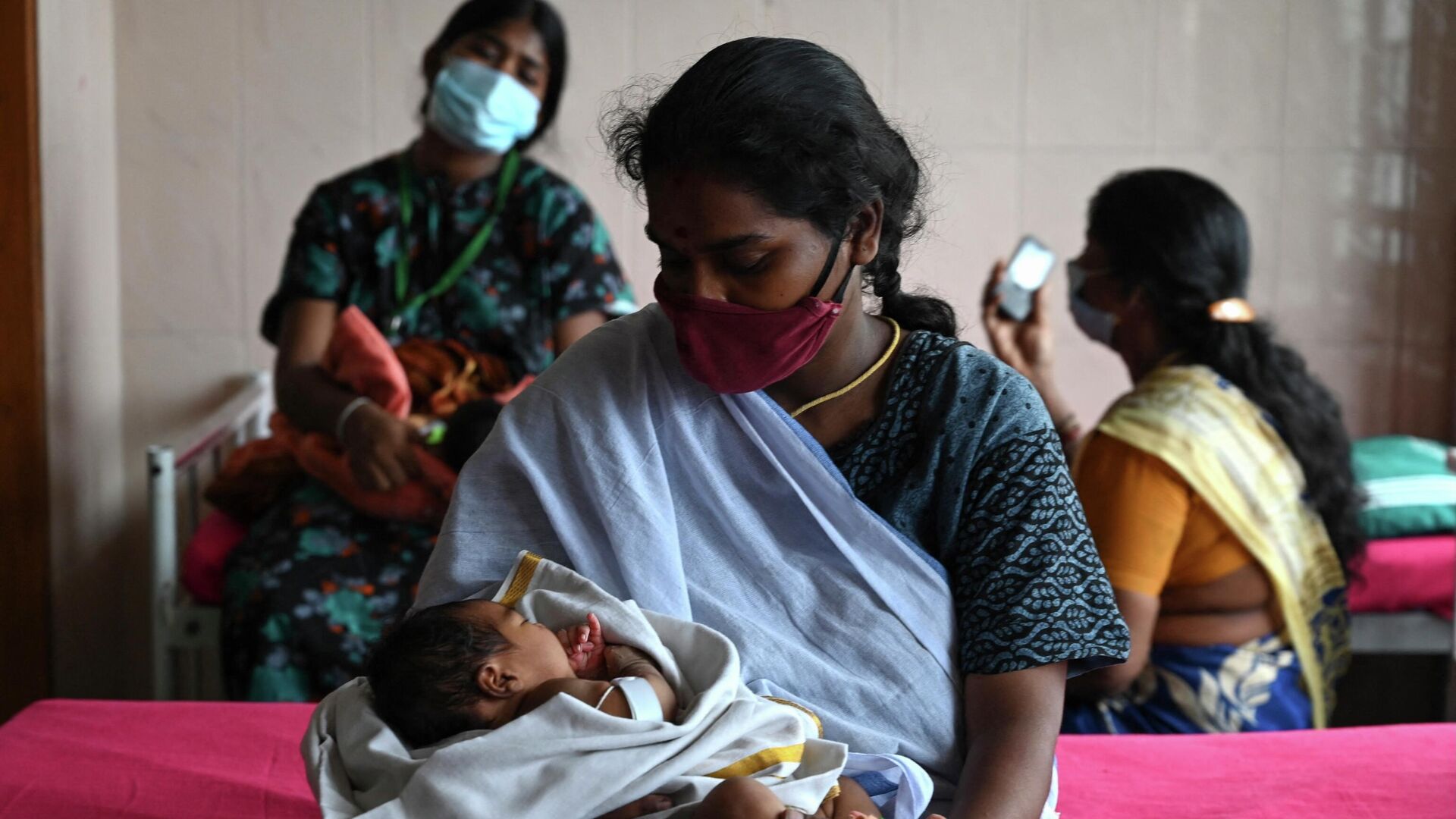https://sputnikglobe.com/20220623/40-of-kids-aged-0-3-suffer-from-long-covid-which-lasts-at-least-two-months---lancet-report-1096594311.html
40% of Kids Aged 0-3 Suffer From Long COVID, Which Lasts at Least Two Months - Lancet Report
40% of Kids Aged 0-3 Suffer From Long COVID, Which Lasts at Least Two Months - Lancet Report
Sputnik International
It has been over two years since the COVID-19 pandemic triggered a global disaster, killing millions and leaving several million others to suffer with the... 23.06.2022, Sputnik International
2022-06-23T12:37+0000
2022-06-23T12:37+0000
2022-07-19T10:44+0000
the lancet
lancet journal
lancet
covid-19
children
children
https://cdn1.img.sputnikglobe.com/img/07e6/06/17/1096595798_0:0:3077:1731_1920x0_80_0_0_7d96dc9fc0d1966917dff809617f85b1.jpg
A recent study published in The Lancet Child & Adolescent Health has revealed that children as young as 0-3 years of age also suffer from 'long' COVID, that can last at least two months.As per the study, fatigue, stomach aches, mood swings, trouble remembering, and rashes are some of the top symptoms of long COVID among children aged 0-14 years.The research confirmed that children with a positive COVID test are more likely to experience at least one symptom which persists for longer than two months following infection than children who had never been diagnosed with the disease.In the 0-3 age group, 40 percent of children diagnosed with COVID-19 (478 of 1,194 children) experienced symptoms lasting longer than two months, compared to 27 percent of controls (1,049 of 3,855 children).During the study, researchers from Copenhagen University Hospital in Denmark analyzed data from a survey of 11,000 children aged 0-14 with a positive COVID-19 test result between January 2020 and July 2021, and were then matched by age and sex to over 33,000 children who never had tested positive for COVID.It found that in older age groups (12-14 years), quality-of-life scores were higher and reports of anxiety were lower for children who had tested positive for COVID-19 than kids who had not, which is likely linked to awareness about the pandemic and societal restrictions."Our findings align with previous studies of long COVID in adolescents showing that, although the chances of children experiencing long COVID is low, especially compared to control groups, it must be recognized and treated seriously," said Professor Selina Kikkenborg Berg from the hospital. Want to know more? Check out our Koo & Telegram accounts!Koo: https://www.kooapp.com/profile/sputniknewsSputnik India: https://t.me/sputniknewsindia
Sputnik International
feedback@sputniknews.com
+74956456601
MIA „Rosiya Segodnya“
2022
Sangeeta Yadav
https://cdn1.img.sputnikglobe.com/img/07e4/08/1b/1080292803_0:121:960:1081_100x100_80_0_0_7490b319dab9611e309056b177265184.jpg
Sangeeta Yadav
https://cdn1.img.sputnikglobe.com/img/07e4/08/1b/1080292803_0:121:960:1081_100x100_80_0_0_7490b319dab9611e309056b177265184.jpg
News
en_EN
Sputnik International
feedback@sputniknews.com
+74956456601
MIA „Rosiya Segodnya“
Sputnik International
feedback@sputniknews.com
+74956456601
MIA „Rosiya Segodnya“
Sangeeta Yadav
https://cdn1.img.sputnikglobe.com/img/07e4/08/1b/1080292803_0:121:960:1081_100x100_80_0_0_7490b319dab9611e309056b177265184.jpg
the lancet, lancet journal, lancet, covid-19, children, children
the lancet, lancet journal, lancet, covid-19, children, children
40% of Kids Aged 0-3 Suffer From Long COVID, Which Lasts at Least Two Months - Lancet Report
12:37 GMT 23.06.2022 (Updated: 10:44 GMT 19.07.2022) It has been over two years since the COVID-19 pandemic triggered a global disaster, killing millions and leaving several million others to suffer with the after-effects of coronavirus. Several research projects are underway to better understand the long-term consequences of the COVID-19 pandemic on children.
A
recent study published in The Lancet Child & Adolescent Health has revealed that children as young as 0-3 years of age also suffer from 'long' COVID, that can last at least two months.
As per the study, fatigue, stomach aches, mood swings, trouble remembering, and rashes are some of the top symptoms of long COVID among children aged 0-14 years.
The research confirmed that children with a positive COVID test are more likely to experience at least one symptom which persists for longer than two months following infection than children who had never been diagnosed with the disease.
In the 0-3 age group, 40 percent of children diagnosed with COVID-19 (478 of 1,194 children) experienced symptoms lasting longer than two months, compared to 27 percent of controls (1,049 of 3,855 children).
“The overall aim of our study was to determine the prevalence of long-lasting symptoms in children and infants, alongside the quality of life, and absence from school or daycare,” said author and professor Selina Kikkenborg Berg of Denmark's Copenhagen University Hospital..
During the study, researchers from Copenhagen University Hospital in Denmark analyzed data from a survey of 11,000 children aged 0-14 with a positive COVID-19 test result between January 2020 and July 2021, and were then matched by age and sex to over 33,000 children who never had tested positive for COVID.
It found that in older age groups (12-14 years), quality-of-life scores were higher and reports of anxiety were lower for children who had tested positive for COVID-19 than kids who had not, which is likely linked to awareness about the pandemic and societal restrictions.
"Our findings align with previous studies of long COVID in adolescents showing that, although the chances of children experiencing long COVID is low, especially compared to control groups, it must be recognized and treated seriously," said Professor Selina Kikkenborg Berg from the hospital.
Want to know more? Check out our Koo & Telegram accounts!




